Dušan Makavejev’s Murderers on the Yugoslavia Express (Speculative Archival Reconstruction of a Latent Film)
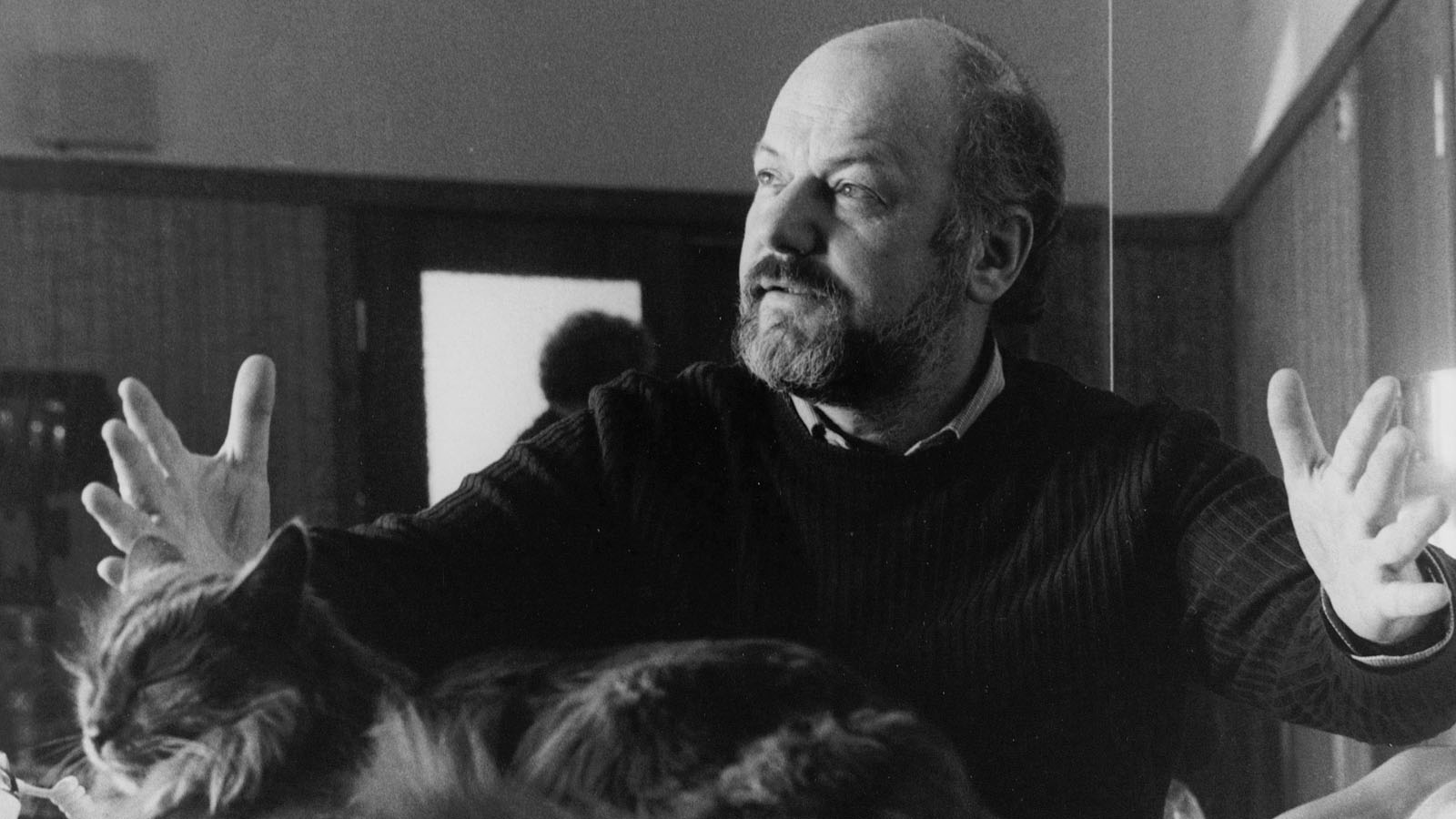
This presentation, based on recent archival discoveries, will introduce the never-before-seen material pertaining to Dušan Makavejev’s 1990s idea for a film about the war of Yugoslav disintegration. Bringing together visual and written threads pertaining to documentary war-photography, Agatha Christie’s murder mysteries, human-animal relations, techniques of montage, and computer-generated imagery, the talk will aim to reconstruct a peculiar cinematic concept, which encapsulates the late phase of Makavejev’s work and deepens our understanding of socialist Yugoslavia’s break up in unorthodox ways. The lecture will be followed by a discussion.
Read More
Paranational Cinema – Archives and Restitution
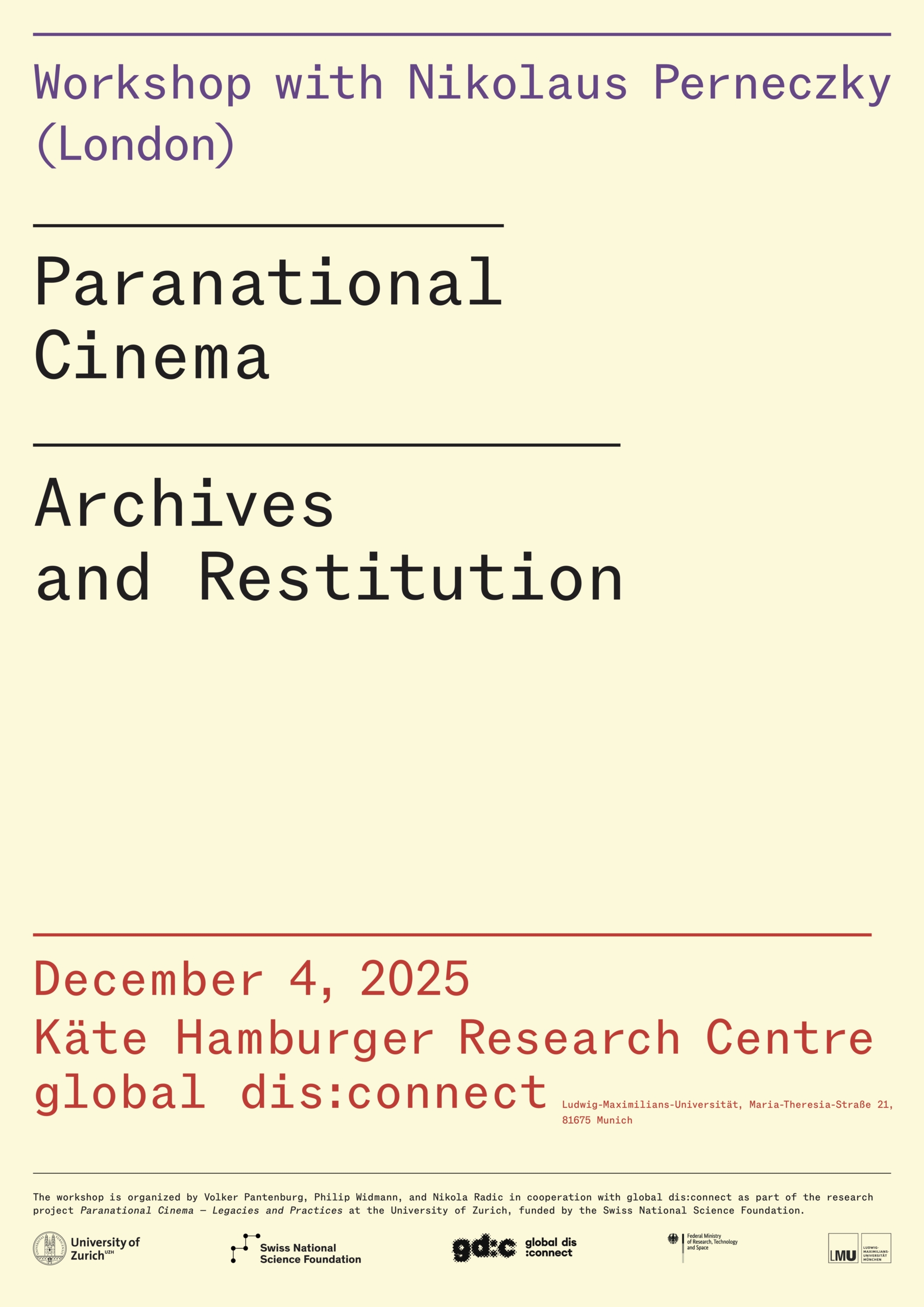
In a workshop on “Archives and Restitution” with Nikolaus Perneczky (London) and current fellows of the global dis:connect Kolleg, we hope to open up an interdisciplinary discussion about the contexts, stakes, and perspectives of the restitution debate when it is approached from the particular requirements of audiovisual media. Responding to the premise that “rethinking restitution through the medium-specific affordances and operations of the moving image compels a reconceptualization of that paradigm” (Perneczky and Valenti), current fellows of the Käte Hamburger Kolleg global dis:connect are invited to share their experiences, questions, and propositions.
Read More
Reclaiming Community in Yugoslav Socialist Ruins: Dane Komljen’s All the Cities of the North
Dane Komljen’s feature All the Cities of the North (2016), an unconventional docudrama centred on three men dwelling in the ruins of a Yugoslav socialist-era vacation resort, weaves an intricate web of observations on community, dwelling and architecture. This paper proposes to demonstrate how the narrative and the locations of the main plotline, on the one hand, and the film’s oneiric and essayistic sequences dedicated to architecture and self-organization, on the other hand, articulate a rumination on community by mirroring the micro-utopia of the three men in real manifestations of Yugoslav architecture and its associative transcontinental linkages.
Read More
Paranational Cinema – Trajectories and Methods

Design: Daniela Burger
What would a map of Paranational Cinema look like? And how would such a map be made? The prefix «para-» allows to question the subsumption of the varied aspects that cinema encompasses—industry, art, and culture, object of research and historiography—into nations and nation-states, as national cinemas in an international context, and often operating transnationally. The certainty of belonging and property, of territorial and historical coherence, of political, economic, and sociocultural organization that these entities provide comes with the price of exclusion and oppression.
Read More
Re-Cinefications: Decentring the Archive of Soviet Film
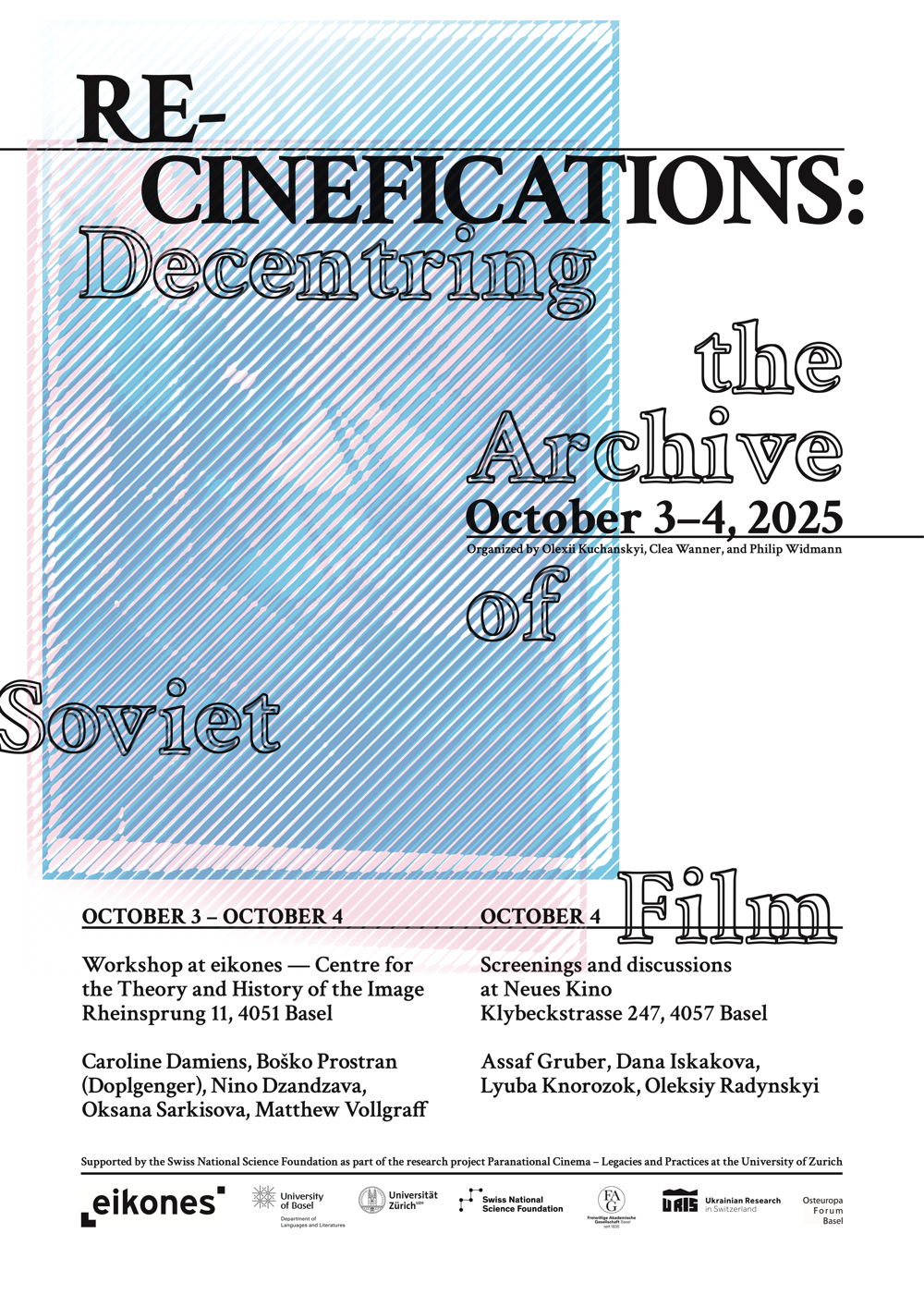
Poster designed by Uliana Bychenkova
Which – minor and multiple – re-cinefications can occur in the critical, experimental, and decentring interventions to the legacy of Soviet film? Re-Cinefications: Decentring the Archive of Soviet Film invites scholarly, artistic, and filmmaking practices to the dialogue about current potentialities of reclaiming the past.
Read More
Revisiting the Mostra Internacional de Cinema de Intervenção (Estoril, 1976)
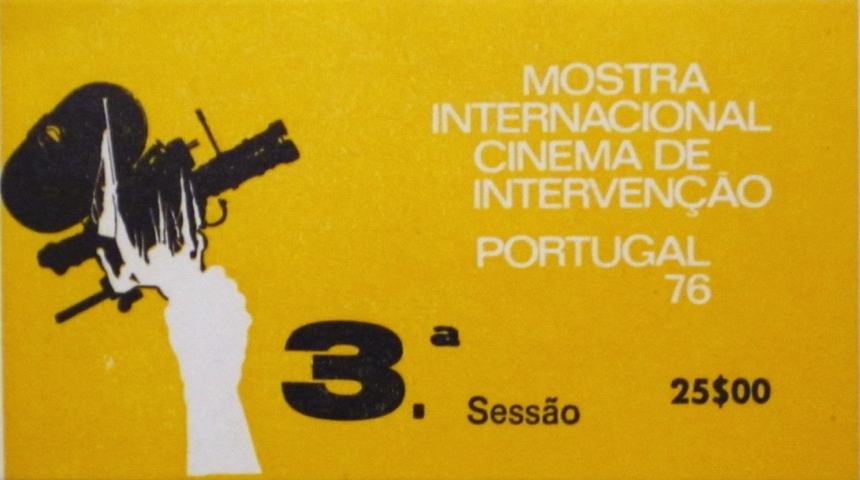
Public encounter dedicated to the Mostra Internacional de Cinema de Intervenção, held in Estoril in 1976. Conceived in the wake of Portugal’s Carnation Revolution, the Mostra’s nine day-long program appears to have been shaped by solidarity networks connecting films and filmmakers from the Global South and North. By putting anti-colonial and anti-fascist struggles in relation to workers’ and feminist movements, the festival articulated cinema’s potential for the intervention into political, territorial, and social divides.
Read More
Going (Back) to Vietnam – Robert Kramer
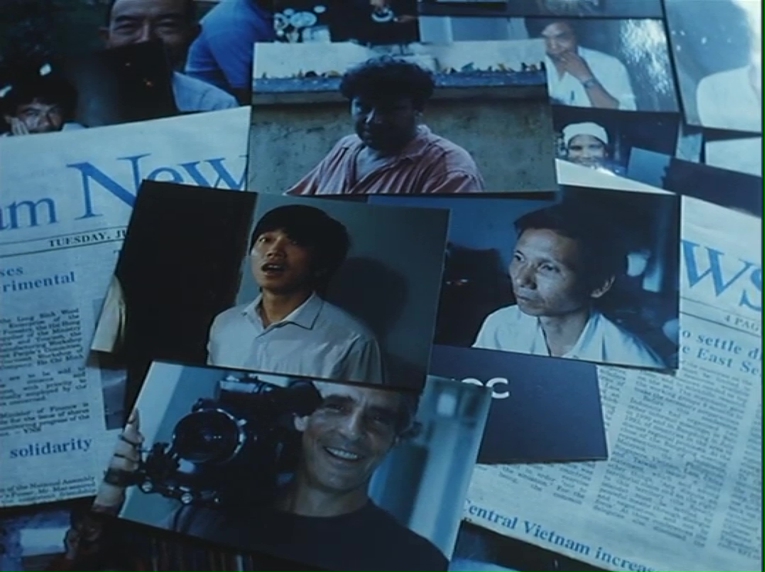
Still from Starting Place (Robert Kramer, 1994)
Starting Place is a film of questions rather than answers: How can one connect to the fights and resistance, but also the frustrations and disappointments of a political project of the 1960s, when Vietnam was an emblem of a small country from the South defying a super power from the Global North?
Read More
Atlantique between Trans- and Paranational Cinema

Still from Atlantique (Mati Diop, 2019), courtesy of trigon-film
In the seminar, we will pick up elements of Mati Diop’s film Atlantique (and, potentially, the earlier short Atlantiques (2009), a predecessor to the feature film), to identify elements of the paranational fabric in and behind the film.
In 2020, Diop recalls: “I started to imagine my film 10 years ago, before what people now call ‘the migration crisis’. Personally, I don’t believe there is a migration crisis, but a moral and political crisis. As the daughter of an immigrant, migration is part of my history and identity and so I see it as a complex and existential reality rather than a subject.”
The film will also help us to better understand the complicated relations between nation, transnationality, and the paranational.
The seminar is open to the public.
Reading:
Suzanne Christine Enzerink: “Black Atlantic Currents: Mati Diop’s Atlantique and the Field of Transnational American Studies,” in: Journal of Transnational American Studies 12.1 (2021), pp. 53–81.
Read More
Atlantique (Mati Diop, 2019)
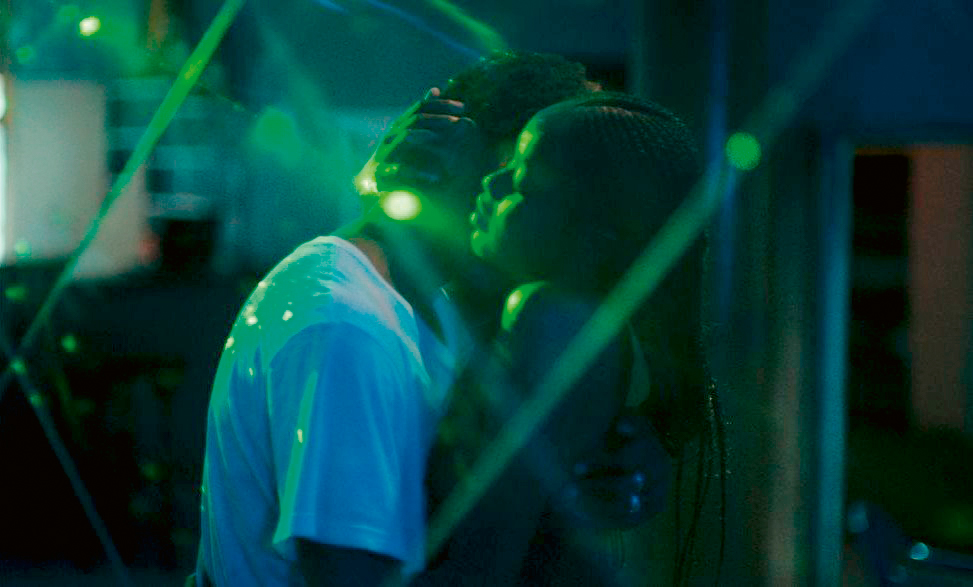
Still from Atlantique (Mati Diop, 2019), courtesy of trigon-film
With Dahomey, winner of the Golden Bear at the 2024 Berlinale, Mati Diop has created a powerful testimony of the restitution of 26 objects from the kingdom of Benin by following their trajectory from Paris to Nigeria and giving agency and voice to the looted objects.
In her debut feature film Atlantique (2019), she focuses on the living and working conditions in Dakar and the specters of violence connected to the migration between North Africa and Europe. Combining documentary methods with impulses of the supernatural and horror genre, she approaches one of the most pressing and violent issues of a crisis that transcends national borders.
The screening of Atlantique, one of 13 films from Senegal in the distributor’s portfolio, will also allow to highlight the work of trigon-film, an important distribution company that specializes in promoting filmmaking from Africa, Asia, Latin America and Eastern Europe. Founded in 1988 and based in Ennetbaden, trigon-film builds bridges between the history of “Third Cinema” and contemporary World Cinema Practices.
Read More
Beyond National Criteria: Paranational Cinema
In this lecture, held as part of the Department of Film Studies’Ringvorlesung: Ränder der Filmgeschichte,’ we will suggest conceptual aspects of ‘paranational cinema,’ but also delineate different case studies: one focusing on the recent landscape tendency in cinema(s) from the Yugoslav territory (Nikola Radić); one navigating the ‘first national film’ made in Lebanon, now lost (Philip Widmann); one discussing problems of the 1960s African American diaspora in West-Berlin (Volker Pantenburg).
Read More
Paranational Moullet
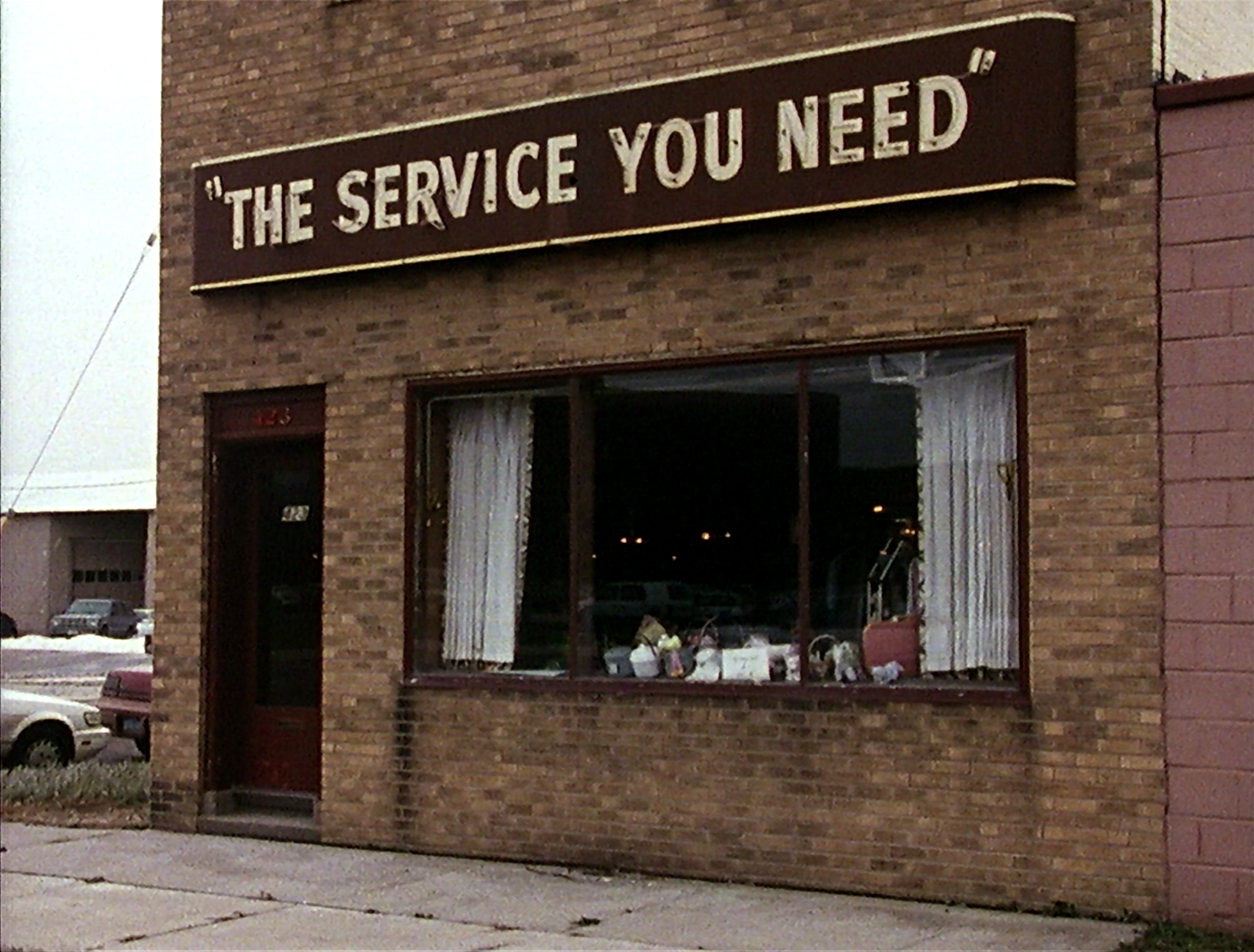
Still from Le Ventre de l’Amérique (Luc Moullet, 1996), courtesy of La Traverse
Chronicling the paradoxical and the absurd, decentering the normative and the exploitative, the filmmaker and film critic Luc Moullet has portrayed overlooked localities, deconstructed fossilized social and cultural practices, and parodied capitalist aberrations. Throughout his career, he has entertained an ambivalent relationship with the places he portrayed, the matters he tackled, the formats he (mis)used and the public or private instances that commissioned them. Confronted with meager funding and the rise of private television in France in the 1980s and the 1990s, he spent two decades making mostly short films. In this seminar, we will take as our starting point the films Foix (1994, 13’), Imphy, capitale de la France (1995, 28’) and Le Ventre de l’Amérique (1996, 25’), to discuss the (counter-)travelogue form, questions of parody and absurd, Moullet’s critique of urban planning and use of cartography, as well as the challenge of creating auteur pieces upon commission.
Read More
Luc Moullet’s Counter-Travelogues (Foix, 1994; Imphy, capitale de la France, 1995; Le Ventre de l’Amérique, 1996)
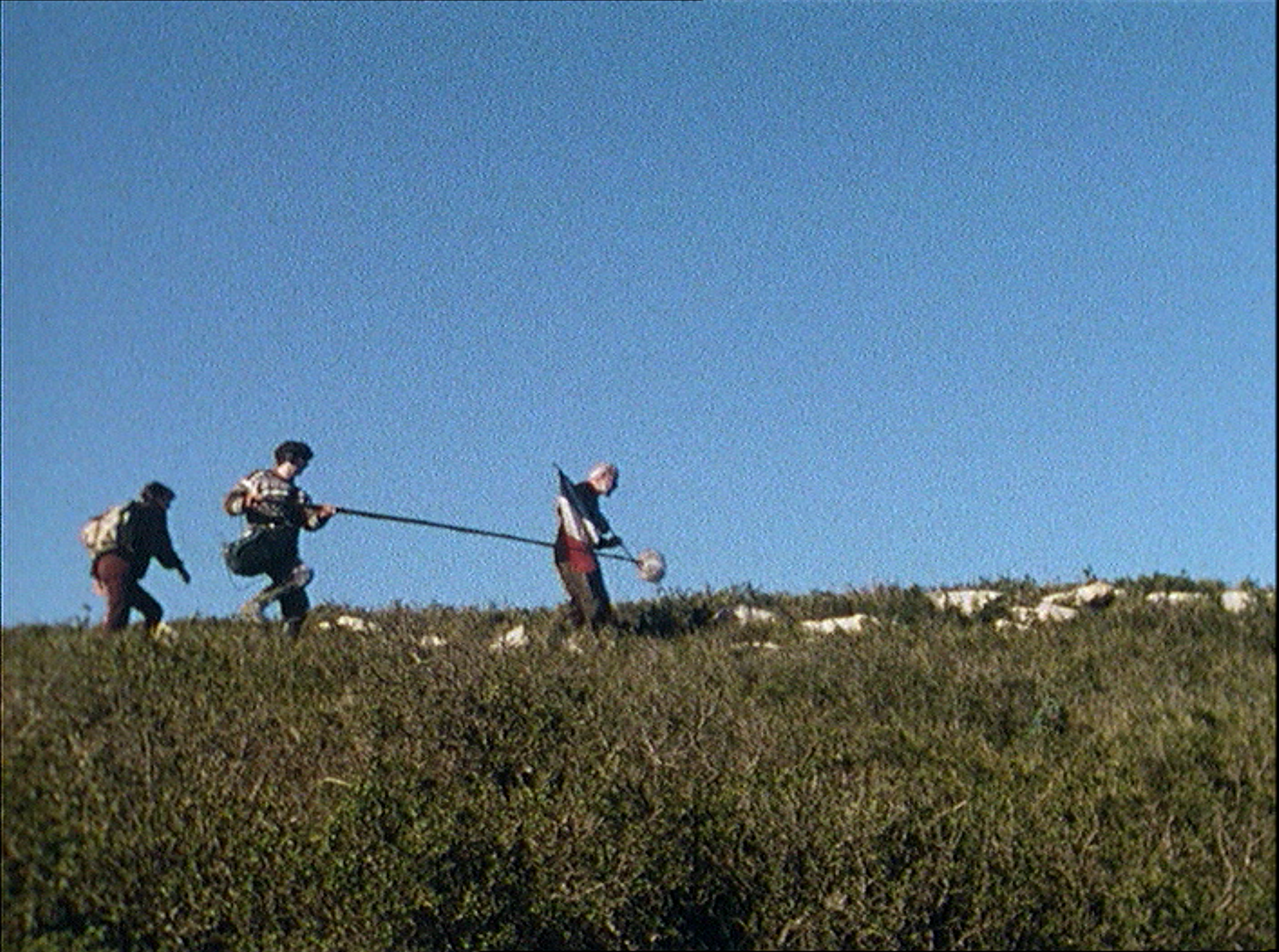
Still from Imphy, capitale de la France (Luc Moullet, 1995), courtesy of Les Films d’ici
A film critic and an astute cultural observer, an absurdist filmmaker and a relentless explorer of uncharted geographies, Luc Moullet embarks in the 1990s on a series of travels that lead him from Foix, that he qualifies as ‘France’s most unfashionable town,’ to various other parts of the country, including the centrally located Imphy, which he believes could replace Paris as the country’s new capital, and finally overseas, to Des Moines, Iowa, that he parodically designates as ‘America’s belly.’ Supported and/or broadcast by the French private television channel Canal+, the three shorts released from 1994 to 1996 (Foix, 13’; Imphy, capitale de la France, 28’; Le Ventre de l’Amérique, 25’) joyfully mock the conventional travelogues, while raising a series of questions on capitalism, the consumer society, institutions, urban planning, tourism, and reflecting on cinema’s and television’s role in maintaining the established order.
Read More
Revisited! Filmgeschichte im Gespräch
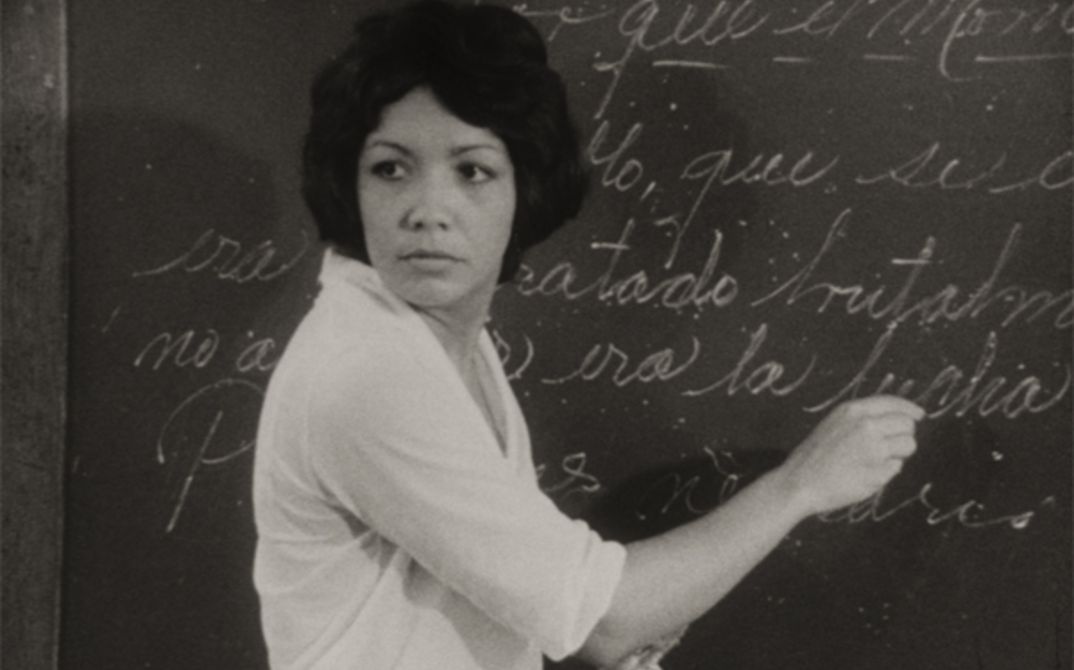
Still from De cierta manera (Sara Gomez, CU 1974), courtesy of Arsenal – Institut für Film und Videokunst
De cierta manera (Sara Gomez, CU 1974) und Kurzfilme von Skip Norman. De cierta manera (In gewisser Hinsicht) ist Sara Gómez’ erster und einziger Langfilm, sie starb 1974, ohne ihn fertigstellen zu können. Die vier Kurzfilme, die der afroamerikanische Filmemacher Wilbert Reuben ‘Skip’ Norman als Student an der “Deutschen Film- und Fernsehakademie Berlin” gedreht hat, fragen nach den Möglichkeiten schwarzer Befreiung in der europäischen Diaspora. Filme rund ums Lehren und Lernen. Filme als Vorschläge, über neue und andere Gesellschaftsformen nachzudenken.
Read More
Unarchiving Film as an Idea
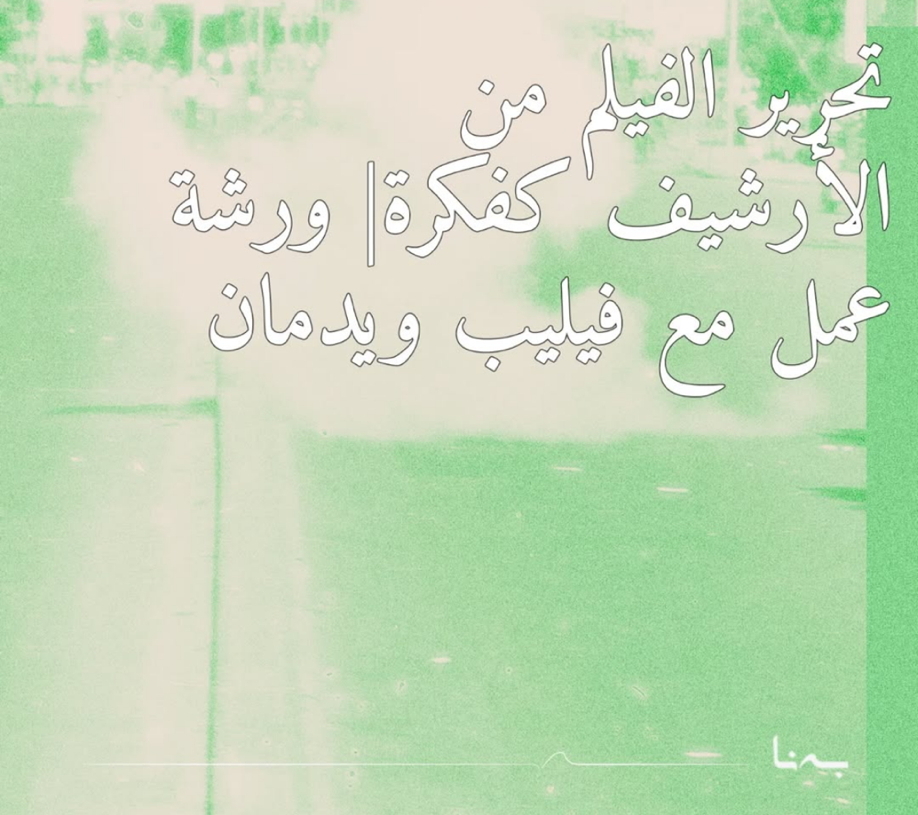
A workshop on methodologies for working with non-filmic sources in researching non-extant, unfinished, and unmade film with Philip Widmann (Berlin/Zürich). Starting from an ongoing research project which attempts to reconstruct the contexts of a specific film’s production, circulation, and loss, we will look at how documents from various public and private sources can help to claim and reclaim film as an idea. In the absence of film as a material art object, its persistence as an idea – in multiple versions and other types of media – documents the role of film as a cultural object which is mutable and related to various contexts, exceeding ’the cinema’.
Read More
Encountering the Paranational Film Archive
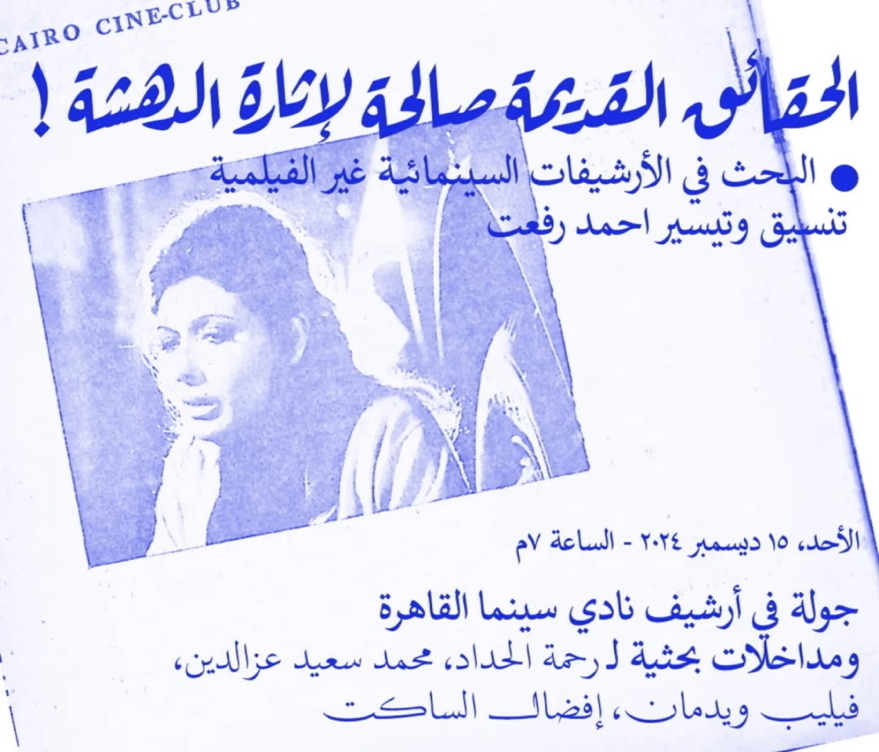
Visual identity by Shahd El Sabbagh
Over the past few months, the Old Facts Are Yet to Amaze workshop has been working on the Cairo Cinema Club archives from its founding in 1967 until 1974. The workshop consisted of eight sessions that delved into various access points to the cinema club’s archive. Now, we invite you to join us for a tour of the archive we explored, complemented by research presentations on other non-filmic cinema archives. These archives encompass diverse materials, including paper material; whether books, magazines, newsletters, publications, in addition to production and distribution documents. Whereas oral histories narrate experiences of going to the cinema and watching films in various contexts.
Read More
Paranational Rocío
Like his film Rocío, Fernando Ruiz Vergara himself escaped from rigid identitarian corsets. His journey as an economic emigrant in Northern Europe and his political exile in Portugal, where he discovered militant and liberation cinema as a form of collective struggle, prompted him to return briefly to Andalusia, his land of origin, to film Rocío. The film’s production process discarded the idea of a strictly Spanish nationality in favour of a Hispanic/Andalusian-Portuguese one that blurs the borders: The film’s crew came from both countries, it was financed thanks by cultural initiatives in Portugal, and it eventually was edited between Lisbon and Madrid. At the same time, Rocío creates an image of Andalusia emancipated from the clichés that the Franco regime and cultural centralism had attributed to this Southern region. In the seminar, we will discuss how perspectives of migration and political exile reshape views of the constitution of nation and state, and how these in turn require and enable new forms of cooperation and solidarity, production and distribution in cinema.
Read More
Rocío (Fernando Ruiz Vergara, 1980)
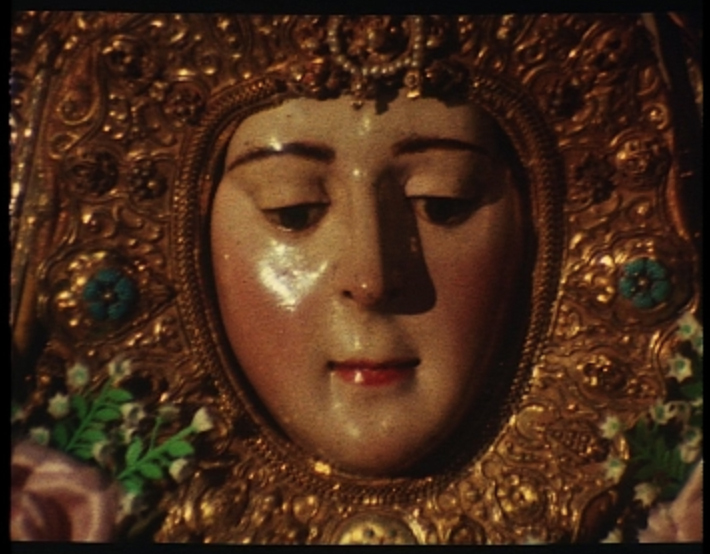
Still from Rocío (Fernando Ruiz Vergara, 1980), courtesy of Hamaca
Rocío and its director Fernando Ruiz Vergara repeatedly challenged the idea of a national centrality of the Spanish state. Developed in the midst of the transition to democracy, this documentary essay, the only film in the filmmaker’s filmography, was seized and judicially censored in the 1980s for pointing out one of the perpetrators of fascist crimes in 1936, after the military coup that led to the civil war and four decades of dictatorship. Rocío dismantled the connections between economic, religious and political powers hidden behind the most massive Marian pilgrimage in the Iberian peninsula. The links between the religious brotherhoods and the Francoist state, the tensions between genuine popular expression, the creation of myths and the construction of a Catholic and national identity, and those underlying the ownership of land and labour revealed the heavy burden of a regime that refused to fade away. Concha Barquero and Alejandro Alvarado will introduce a reconstruction of the uncensored version of the film.
Read More
Voiceless Bodies, Bodiless Voices: Politics of Dissociation in Post-Yugoslav Documentary and Experimental Film
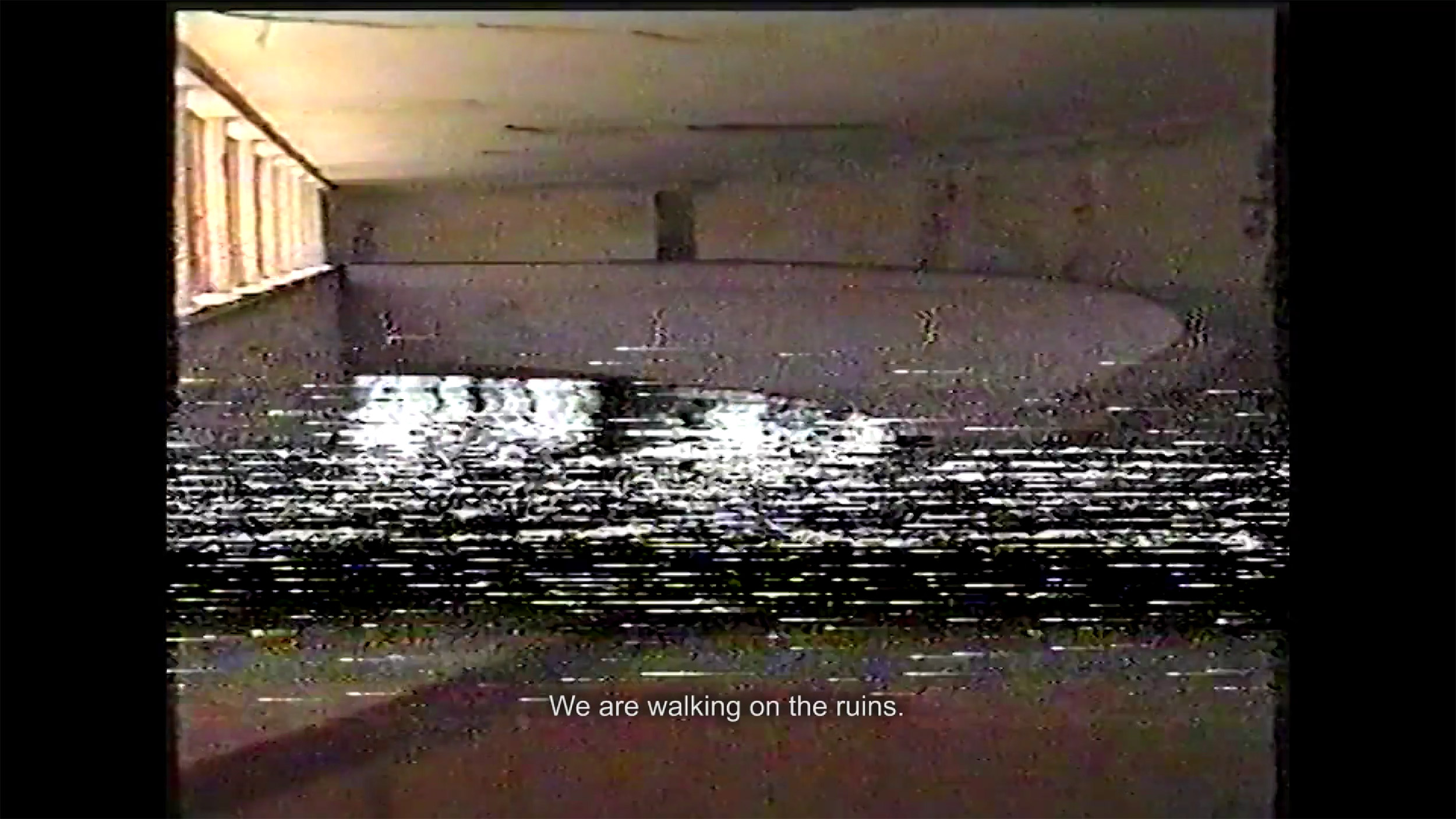
Still from A Record of Landscape without Prehistory (doplgenger, 2020), courtesy of Boško Prostran and Isidora Ilić
Examining two sets of contemporary documentary and experimental films from the former Yugoslav region, this paper outlines two mirror-like relations between the onscreen presence or absence, and the voice or the voicelessness. In the first (works by Ognjen Glavonić, Tea Lukač, Kumjana Novakova, doplgenger), the voice-over is projected onto landscapes and buildings, without the speakers ever being shown on the screen, whereas in the second (films by Ivan Marković, Bruno Pavić, Ivan Ramljak), the protagonists are deprived of their voice.
Read More
Cinema by Other Means, a Symposium
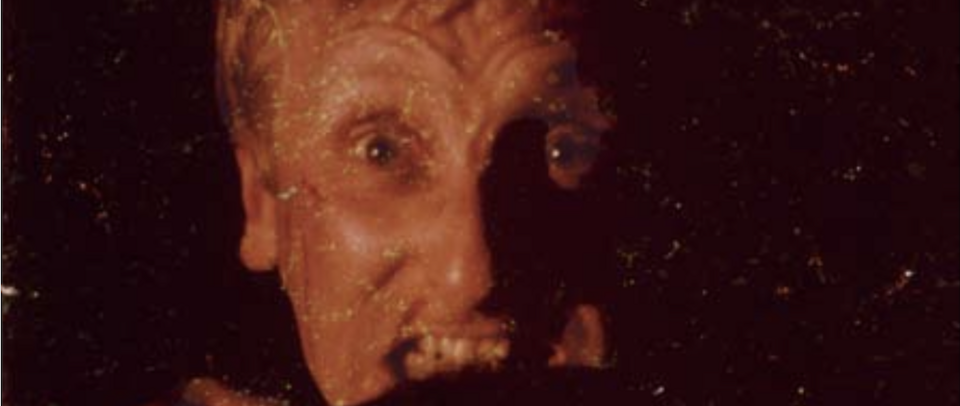
Still from Maratonci trče počasni krug (The Marathon Family, Slobodan Šijan, 1982); experiment also known as Media Suicide, Investigation No. 4—Film, 1981. Source: Pavle Levi’s Cinema by Other Means (Oxford University Press, 2012). Courtesy of the symposium organizers.
This day-long symposium at Slavisches Seminar der Universität Basel in commemoration of 15 years since the publishing of Pavle Levi’s Cinema by Other Means will gather researchers and curators to contemplate the various contexts surrounding Levi’s project and to extend its significance in novel directions. In addition to presentations and panel discussions, there will be a companion film program presented at Stadtkino Basel, with an online introduction by Pavle Levi.
Organized and curated by Greg de Cuir Jr. and Clea Wanner, including participation by Sanja Bahun, Petra Belc, Anna Hodel, Milan Milosavljević, Kin Knowles, Nikola Radić, Tanja Simeunović, Sonja Simonyi and Philip Widmann.
Read More
Territories of Paranational Cinema II
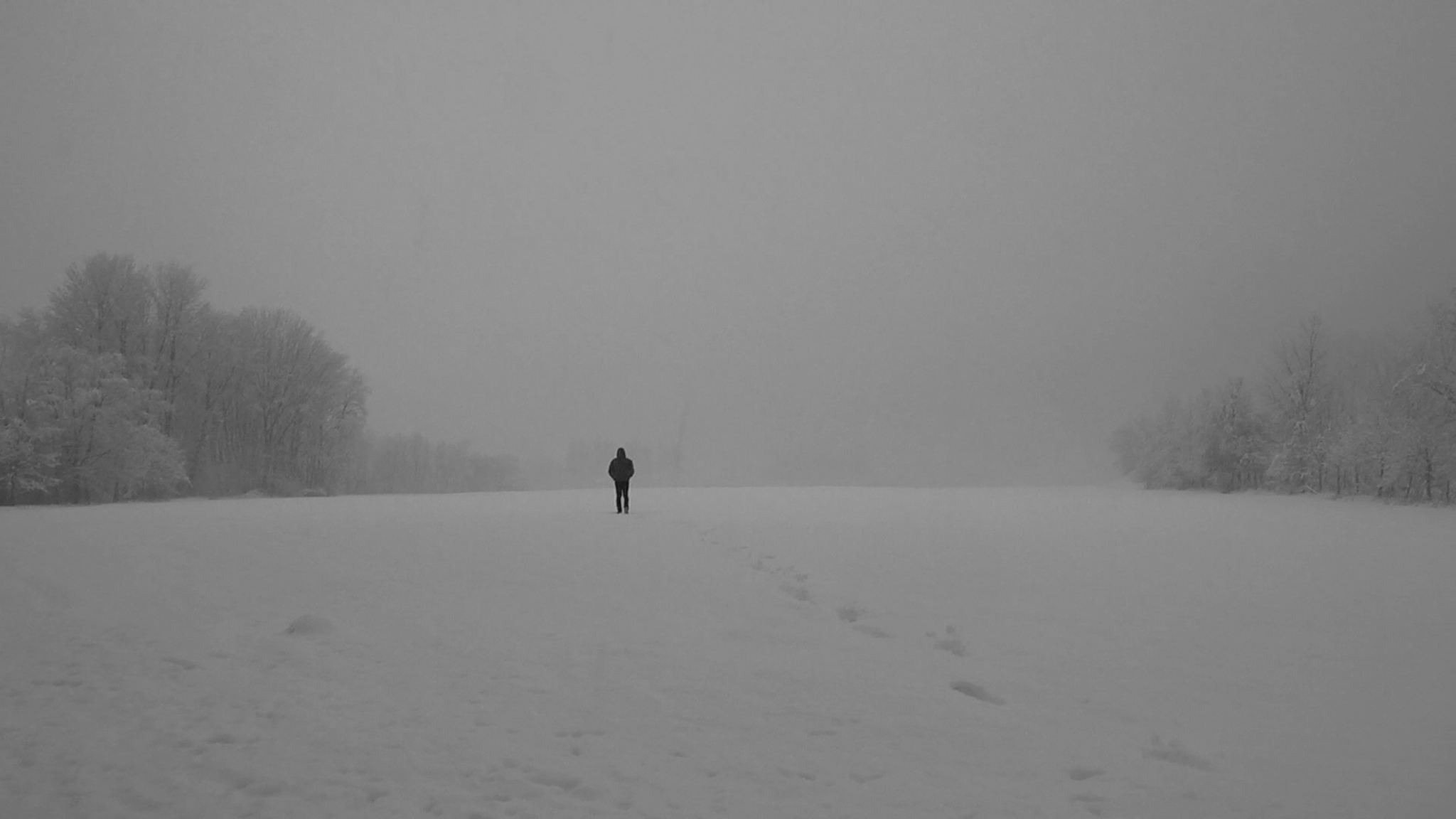
Still from Geology of Separation (Yosr Gasmi and Mauro Mazzocchi, 2023), courtesy of the filmmakers
During the seminar we will read and discuss three texts and watch a short film in conversation with Geology of Separation. The aim is to explore ways in which the perceptions and sensibilities prompted by Geology of Separation might contribute to an analytical vocabulary for cultural critique: one that does not see migration or the condition of living in the interstices of the nation-state order as an exceptional limbo and a condition to be corrected, but as a mundane aesthetic and everyday experience of living in ruins from which imaginaries of coexistence can be reassembled. What do you do when compelled to wait for something that might never materialize? How do we imagine the loss of things that never were?
Read More
Geology of Separation (Yosr Gasmi and Mauro Mazzocchi, 2023)
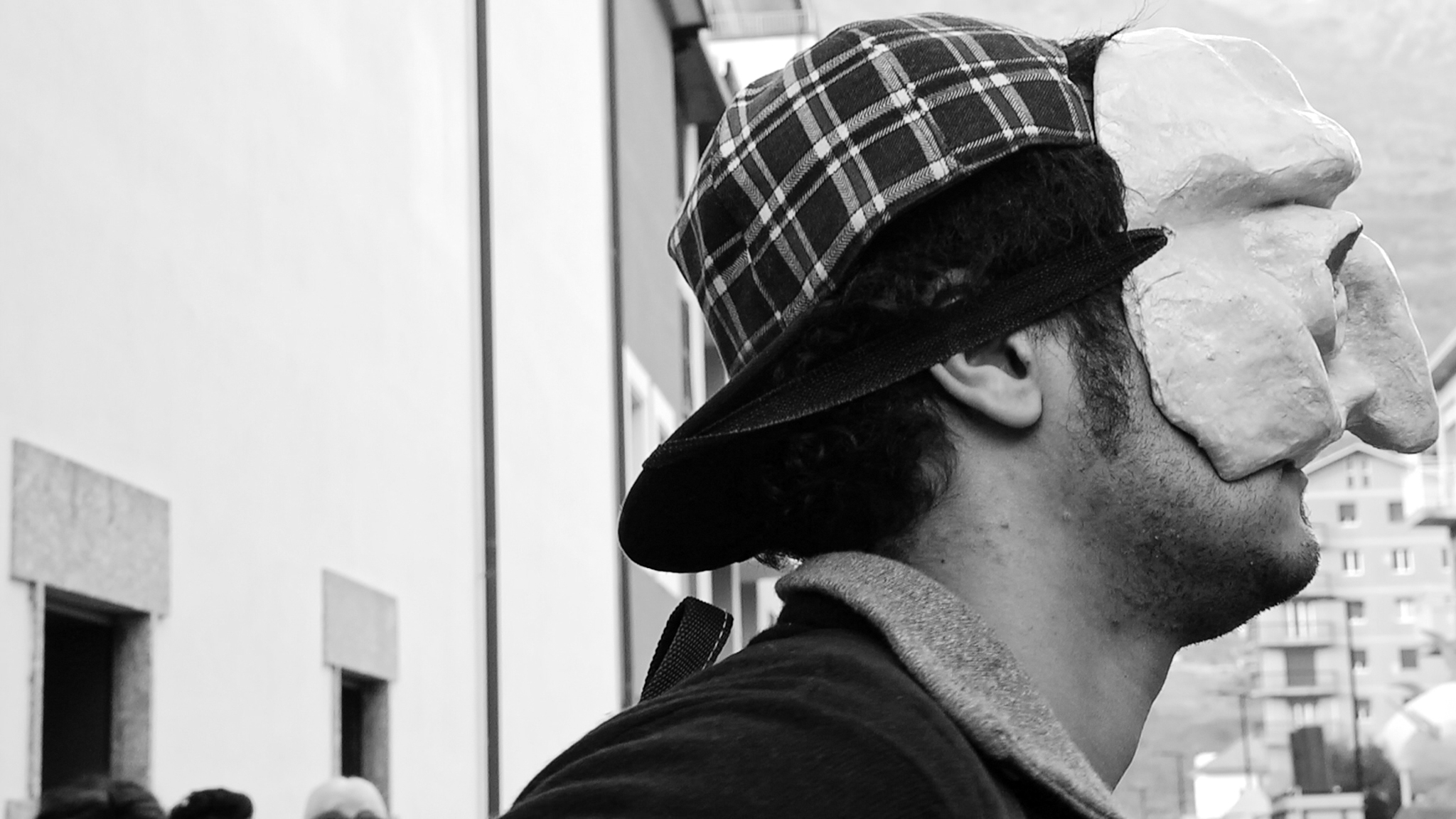
Still from Geology of Separation (Yosr Gasmi and Mauro Mazzocchi, 2023), courtesy of the filmmakers
Abderrahmane has been living in the Alps in northern Italy for six months in a former family-run hotel converted into a temporary reception center for asylum seekers. In the room opposite his, lives Laly. Abderrahmane is waiting to appear before a commission that will rule on his asylum application. He has been warned: in view of this trial, he will have to tell his detailed story. Laly has appeared before the commission twice, soon he will have the response from Italy, from Europe. “In the name of the Italian people,” he will have to leave. Laly does not know yet, but soon there will be the Italian-French border and its giant mountains from which one sometimes hears a shrill cry: an elegy, which crosses the dislocated territories of migration, those that separate the south from the north, the sky from the earth. And in this story of the eye that is so human, appears in the background, the tragedy of the original soil, that of the Pangea or separation.
Read More
Territories of Paranational Cinema I
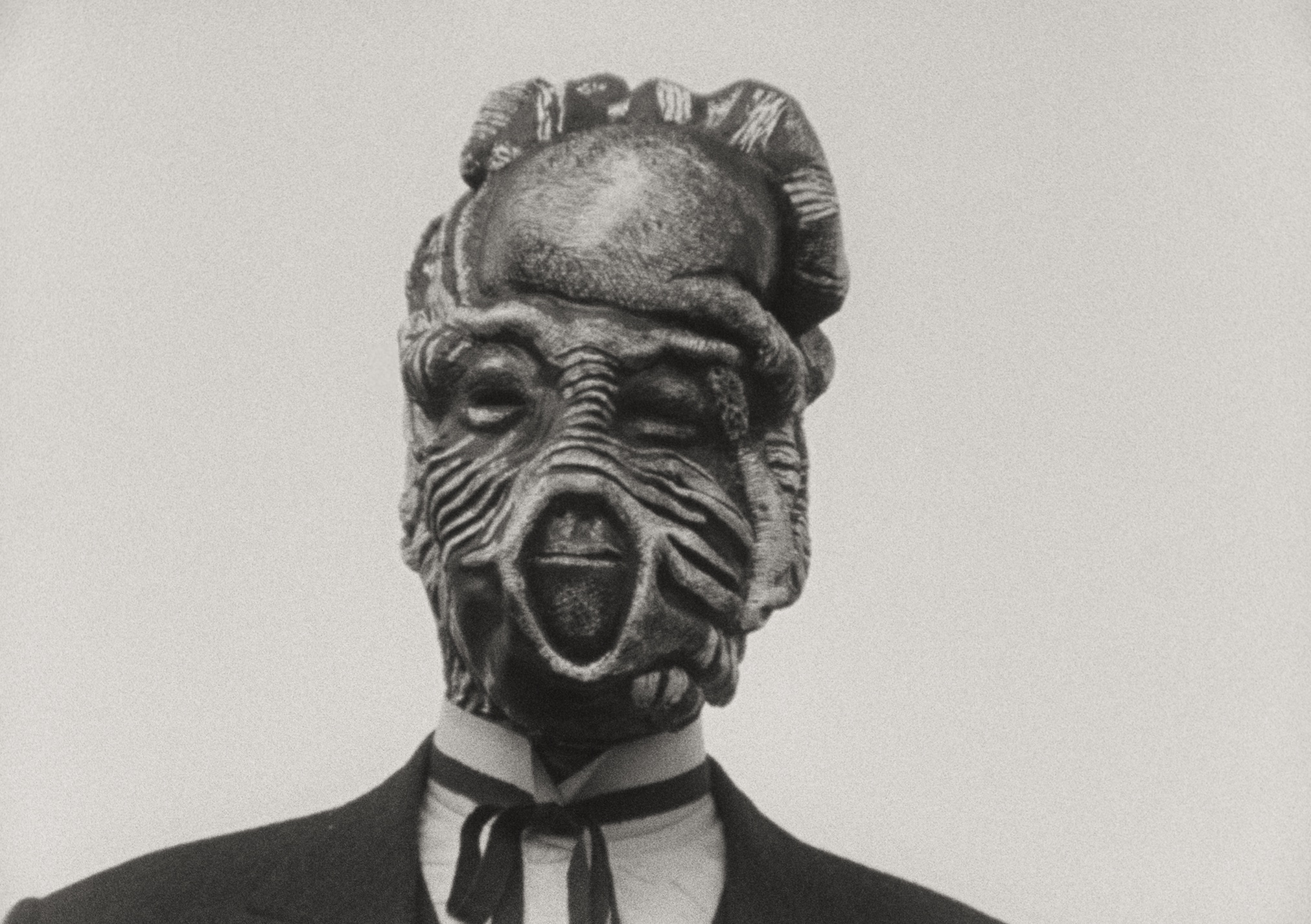
Still from Nuestra voz de tierra, memoria y futuro (Marta Rodríguez and Jorge Silva, 1981), courtesy of Arsenal – Institut für Film und Videokunst
This seminar will depart from three main questions that are articulated throughout Marta Rodríguez and Jorge Silva’s film Nuestra voz de tierra, memoria y futuro, while drawing parallels to other films. The question of land back, central to the film, will constitute the main part of our discussion. It will unfold in relation to how cinematic temporality captures the struggle for land, the act of reclaiming land and working it, as well as the question of “trespassing” private property. All of these issues will be looked at from a filmic perspective, in the way they are translated into filmic tools and how the filmic in its turn sits in land struggles. A selection of film excerpts will be discussed in this framework.
Read More
Nuestra voz de tierra, memoria y futuro (Marta Rodríguez and Jorge Silva, 1981)
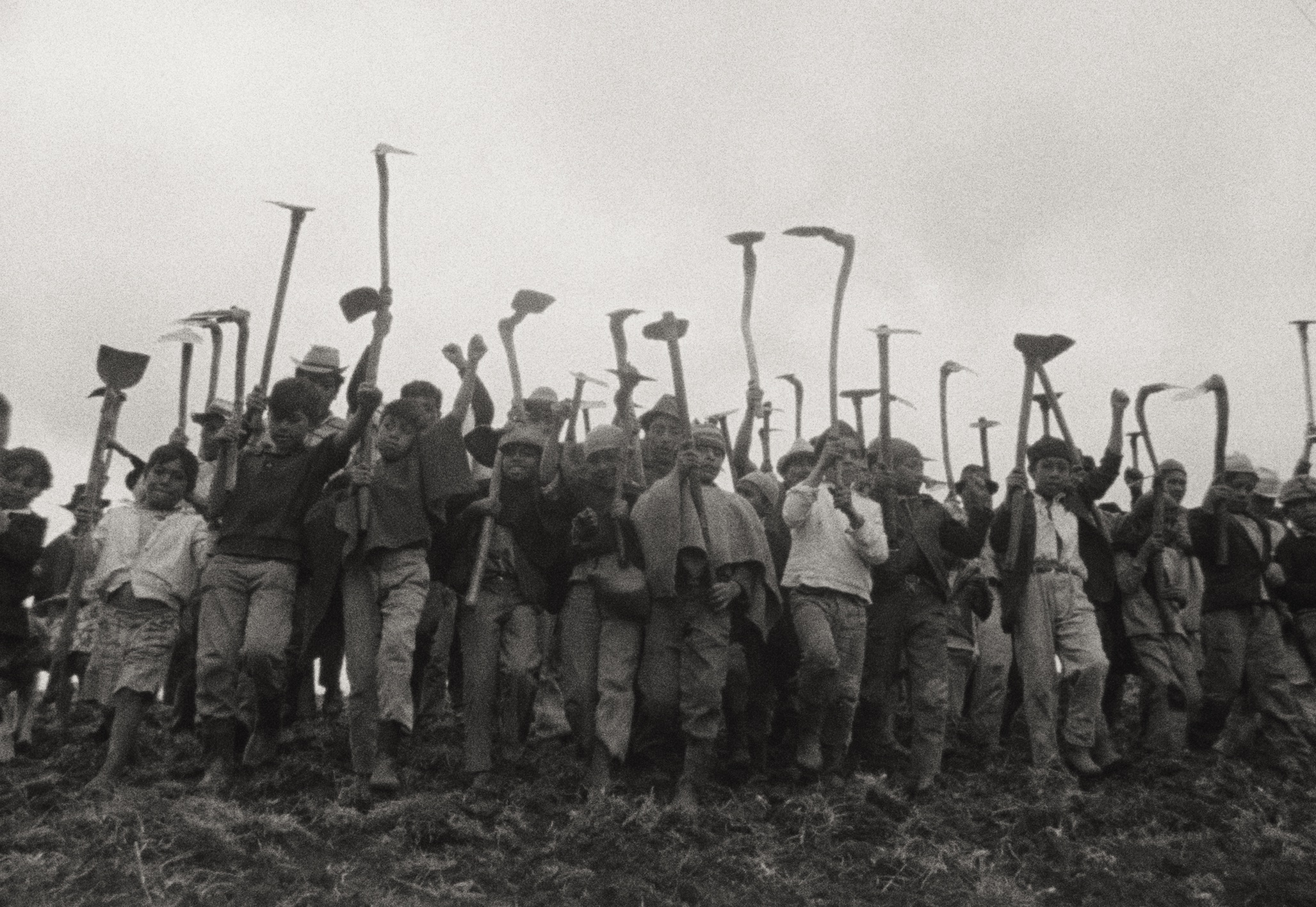
Still from Nuestra voz de tierra, memoria y futuro (Marta Rodríguez and Jorge Silva, 1981), courtesy of Arsenal – Institut für Film und Videokunst
Nuestra voz de tierra, memoria y futuro documents the first years of the Cauca Regional Indigenous Council (CRIC) and its struggle to reclaim ancestral territories, reflecting on the centuries-long oppression of farmers and indigenous peoples in Colombia. Fusing straightforward documentation and fantastical visualization, the film mingles myth, poetry, and popular memory while capturing a defining moment in the modern indigenous rights movement.
Read More
Encountering the Paranational Film Archive
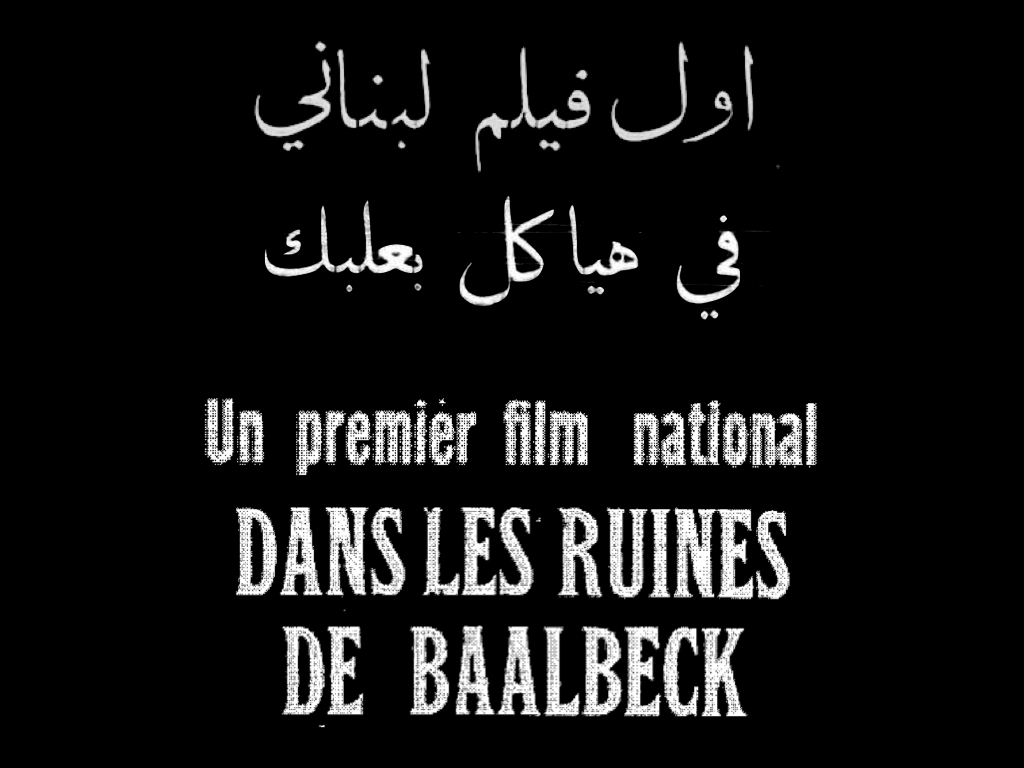
Montage of newspaper headlines from Al Bachir (27 February 1937), Al Ahrar (19 February 1937) and L’Orient (19 & 20 February 1937)
The first talking film made in Lebanon, Dans les ruines de Baalbeck, was produced during the 1930s by a German woman who had established a production company in Beirut which operated its own laboratory and sound stage. A rare case of independence from European film facilities, years before the end of French Mandate rule. The film is today considered to be lost. The film archive that could potentially have preserved it does not exist in Lebanon. In Germany, the film and its producer have remained unknown, its archives hold almost no records related to them.
The absence of what was advertised as “a first national film” within and without the archive has prompted a research approach which looks for the ‘encounter’ with contextual fragments rather than the ‘discovery’ of a singular object to be preserved and historicised. Between locations and languages, the film can be situated as a ‘cultural object’ across contexts that are not cinematic but condition the cinema and are to some extent conditioned by it. Materials relating to the competition and cooperation between parallel national(ist) projects at the time could constitute another type of ‘archive’ in which the absent film attains presence.
Read More
Black Internationalism: Skip Norman and Beyond
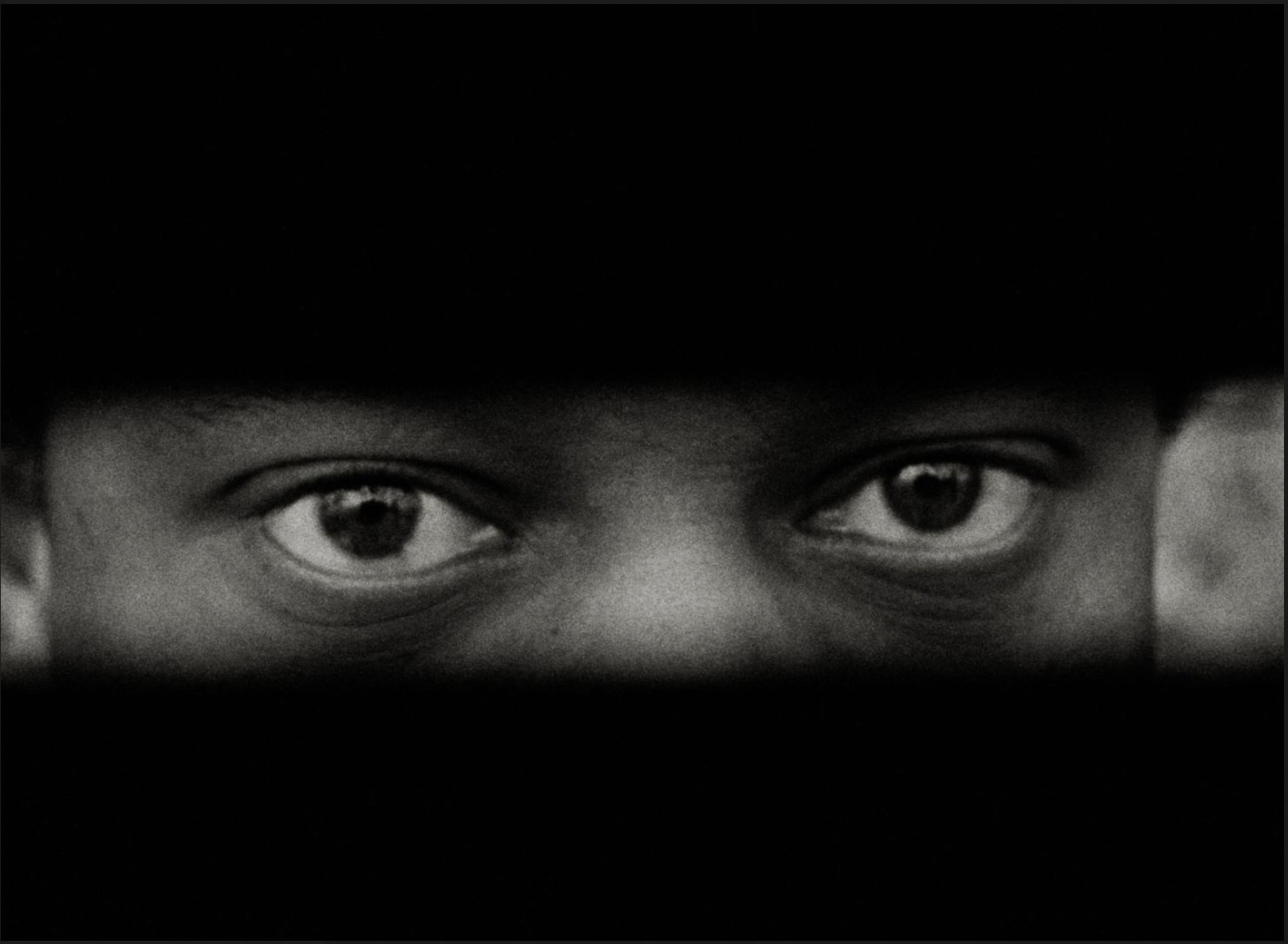
Still from Blues People (Skip Norman, 1968), courtesy of Stiftung Deutsche Kinemathek
Black filmmaking has long been relegated to the margins of film history. In recent years, with the increasing interest in ideas of decolonisation in art and culture as well as in academia, it has finally become more visible. The first part of the lecture will focus on Wiliam Reuben (“Skip”) Norman, who was part of the first cohort of students when “Deutsche Film- und Fernsehakademie” (DFFB) was founded in 1966. In reconstructing Skip Norman’s trajectory, the specificities of the film school context, and the special situation of Norman’s expatriate position will be highlighted. In the second part of this lecture, we will consider Norman in the larger context of Black Internationalism in film and culture in the 1960s and 1970s. Norman belonged to an ideological and mutually supportive cohort that circulated around each other in Europe, if not always directly interacting or collaborating. We might think of a filmmaker like Melvin van Peebles, or a polemicist and activist like Angela Davis, or even a man of letters like James Baldwin. Skip Norman’s position in this historical continuum has yet to be properly accounted for.
Read More